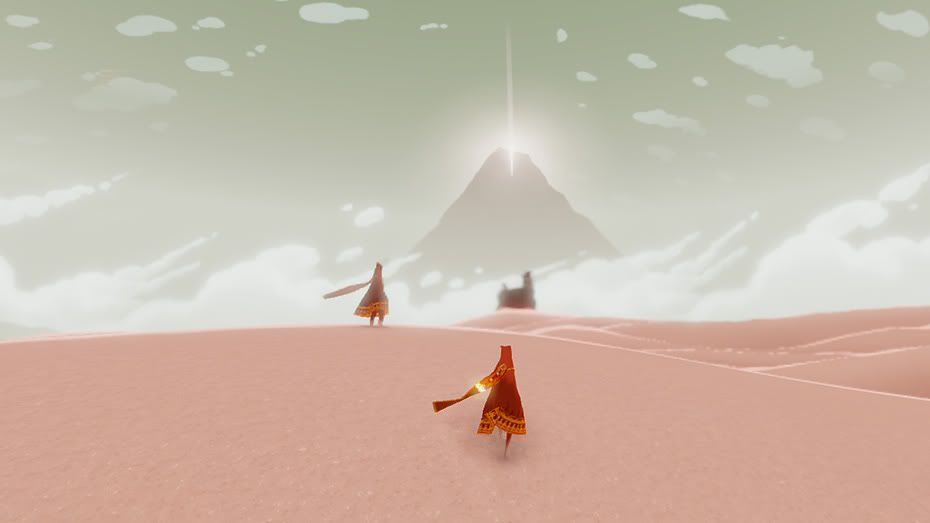This post has not been edited by the GamesBeat staff. Opinions by GamesBeat community writers do not necessarily reflect those of the staff.

In an interview with Gamasutra, Jenova Chen, co-founder of developer Thatgamecompany, revealed one of his gripes with games:
My biggest complaint for computer games so far is they are not good enough for adults.
Oh?
For adults to enjoy something, they need to have intellectual stimulation — something that's related to real life. Playing poker teaches you how to deceive people, and that's relevant to real life. A headshot with a sniper rifle is not relevant to real life. Games have to be relevant intellectually. You also need depth. You have the adventure — the thrill of the adventure — but you want the goosebumps, too.
I get where he’s coming from. In fact, I feel I’ve learned more about myself through playing a few games. But I didn’t learn anything that could help me in real life from playing Flow and Flower. I don’t think I’ll learn very much when I play Journey, either. It may help me nonverbally communicate with in-game players, but it’s quite a stretch to assume it’ll help with the rest of my life.
And that’s okay.
Phil Fish once referred to Fez as a "stop and smell the flowers kind of game." That’s how I feel about Thatgamecompany’s titles. I play them to have a good time — the same reason I play any other game. If I learn something useful, then great! If not, then I don’t feel I wasted my time. Games don’t have to be revelatory.
To put it simply: I like making my way through Braid, but shooting someone’s head off in Gears of War 3 is pretty satisfying, too.

It seems this is lost on Chen when he explains his plans for the future:
Can games make you and another human learn something intellectual and relevant from each other? Can games make you and another human experience an emotion that's deep enough to touch adults? I'm working on all of that. Making emotional games and making them intellectually relevant — making games where people can connect and come together.
Kinect Sports brings people together. Mario Kart 7 brings people together. Draw Something brings people together. You know which triple-A blockbuster game will undoubtedly bring people together? Call of Duty: Black Ops 2.
These games won’t supply any epiphanies, and it’s easy to dismiss them as juvenile, but players will feel everything from loss-induced ragegasms to absolute euphoria. They’ll "experience a powerful range of feelings": one of Chen’s goals. They’re the same range of emotions that people receive from watching big sports games together, and those events aren’t very intellectually satisfying, either.
There’s nothing wrong with wanting mentally stimulating games. Except I wouldn’t play many of them if that’s all I were interested in. Furthermore, I’d be ignoring a lot of great "dumb" games that greatly influence the medium. Resident Evil 4, Mario 64, and Crysis were just entertainment to me; however, there is no doubt that they’ve contributed to gaming. I’d miss out on many titles if I ignored them because they didn’t personally connect with me.

As an adult, I don’t look to games for insight. I don’t mean to insult Chen or the medium. I welcome such insight when it’s provided. It’s just closed-minded for him to assume that some kind of personal depth is required to satisfy an older audience. In an interview with PlayStation Blog, he’s admitted to losing interest in fighting games:
But as I get older, what’s the point in pulling off another infinite combo?
Plenty of adults still enjoy fighting games and maintain many of the same interests — not limited to games — that they’ve had since childhood. They don’t have poorer taste for it. Nor is it a sign of immaturity. You can apply the sports example to this as well. My point is: In an industry that simultaneously offers Marvel vs. Capcom 3 and Dear Esther, who says we can’t enjoy both?
Looking at games for their practical value diminishes them. They’re no longer art, creative forms of expression, or even entertainment. They become mere products.
Adults can share emotions and connect with each other from all kinds of game experiences, which includes witnessing Aeris’ death in Final Fantasy VII and scoring the last-second flag capture in the latest first-person-shooter. Triple-A games can connect with players just as well as the indie releases. To ignore them because they allow players to shoot at each other would just be, well, childish.
